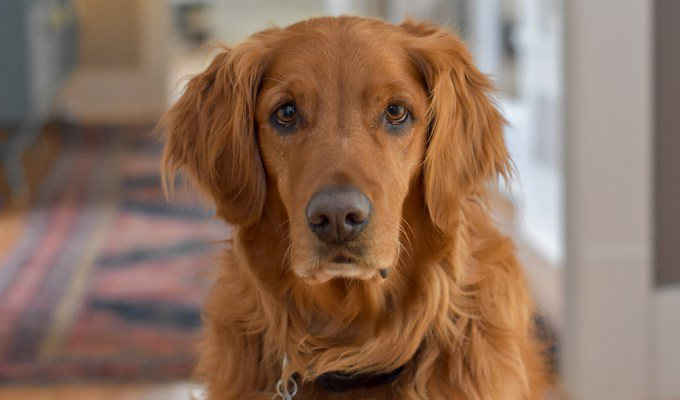How to Choose the Right Dog Breed
Living with a dog in the flat is something you should not take lightly. The dog lives an average of ten years. So, you not only have to find the right dog breed, but also learn to live with it. The dog is known for its proverbial fidelity to man. Therefore, for many people, a dog is a great pet.
After a carefully considered decision about choosing of a puppy, some basic rules should be observed.
How to choose a dog breed
Which breed?
It is true that certain breeds are known for their dominant character, the German Shepherd is considered obedient, the Labrador as fond of children, the Greyhound as independent?
But despite the inherited character, no selected dog breed can be classified so categorically. Also, generalizations about the resilience or sensitivity of a dog are to be treated with caution: from the allegedly sensitive Chihuahua to robust fox terrier can always be exceptions.
In fact, one should choose a breed based on what role the dog has been given in relation to its weight and size. Anyone who chooses a Yorkshire watchdog is just as wrong as one of a Great Dane or a Pyrenean Shepherd would lock up in the flat all day.
In general, even though they are more nervous, small breeds need less space to live than a medium sized dog breed. Large breeds, on the other hand, always need a lot of space and an outlet.
The costs of a young dog also play a role in the choosing. They depend on his ancestry and how rare the breed is. But it is clear that some people can not afford a purebred dog financially and therefore look around among the "half-breed puppies", where it is difficult to predict how big and difficult they will be once.
No matter which breed you choose, always be aware of the fact that every dog needs your attention all day long.
Choose a male or a female?
Bitches are generally calmer and gentler than males. Her standard size is smaller than that of the males. Another advantage is that they enjoy a preferential treatment at each meeting with males: the males are friendlier and less aggressive in their presence.
The principal disadvantage of bitches is their half-yearly heat: mostly in spring and autumn. Then, males and their stubborn sexual interest are regularly attracted. But by ovariectomy before the first heat can be remedied and prevent the bitch against the desire of her owner is pregnant. This decision is irrevocable!
Dogs that are said to be more susceptible to running away than females may have a very different character in the presence of a bitch in heat: a quiet dog, for example, is aggressive and nervous, and sometimes provokes fierce battles with his peers.
If you keep several dogs, at least none of the dogs is alone. Owning more than two dogs is difficult: you have to be very strong to become the boss of a pack of three or four dogs. A couple male and female is a good solution.
However, you have to think about where you want to accommodate the puppies later.
Choosing two males are generally discouraged. Once they are sexually mature, they can quickly become rivals.
However, two women tend to perceive each other quite well. In any case, the owner should be aware of the problems that the presence of two dogs can bring with them.
Where do you buy your dog?
After choosing a dog breed, a potential buyer has many options for buying: from the display of a private person in the daily paper, to animal shelters, to the breeder, the choice is enormous. However, some options should be excluded.
There is no guarantee whatsoever in the market for the puppies descent, and it will not be easy to find the seller if something is wrong with the dog.
Dog kennels are also not recommended. The puppies do not always come from very responsible breeders and can therefore have health problems.
The living conditions are often unsatisfactory: the cages are sometimes unsuitable, and in any case, the puppies do not go outside and do not experience the normal behavioral development that they need. Thus, he is likely to develop behavioral disorders in the future.
If you do not care about the breed or if you have no problems with it, if your dog does not have any papers, listen to which of your neighbors has a pregnant female and take one of the puppies.
However, if you have carefully considered and chosen which breed do you want, you should rather get your dog with a breeder. The list is available from associations, clubs, veterinarians and pedigree clubs.
What is the optimal age for the dog you choose?

A good breeder must know all his breeding animals. Check the living conditions of the puppies: the more contact they have with people of all ages, the less problems there will be with children. This also applies to other animals.
On your first visit, the breeder may not have any puppies he can give you. This shows that he is trustworthy: his bitches are not constantly pregnant and if litters are present, they have not yet reached the right age.
The cub needs to go through certain stages of development before it can be put into a family. Roughly speaking, he needs to live with his mother long enough to find out who he is as a dog. Contact with humans is also important: it can occur as soon as the mother accepts the presence of a stranger and as soon as the puppies leave the litter-bearing.
When the puppy completes these two stages, he is about seven weeks old. However, he is still sensitive, and it may be that the breeder on principle only sold his dogs for at least three months. Do not buy a puppy that is not at least eight weeks old!
Proper care for your pet
No matter what breed of dog you choose, you have to know, educate, love and respect him.
Knowing him means getting to know his innate character and foreseeing his reactions.
To educate him means to show him his territory on which he can develop, as well as to learn what he is allowed to do and above all what he is not allowed to do.
Loving him means that you agree to look after him and give him attention as long as he lives.
To respect him means to regard and treat him as an animal.
A dog is not a human being: he does not live like a human, he does not eat like a human and he has his own nutritional needs.
In a dog, proper nutrition should address specific needs based on its size and breed, its anthropomorphism, that is, the tendency to attribute typically human character traits and/or nutritional preferences or other behaviors to the dog, to its health and/or harmonious coexistence humans and society only be detrimental.

